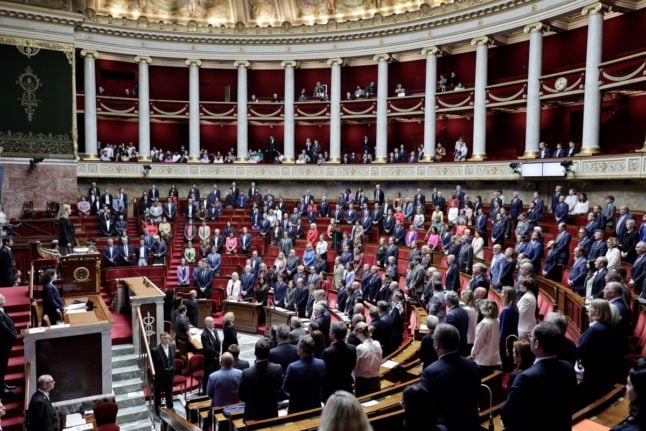After a Syrian refugee stabbed four children and two adults at a lake-side park in the Alps last week, he repeated the term — which he coined himself in a speech last September that referred to the “violent colonisation” of France by foreigners.
Other supposed victims of “francocide” — all white French people — include a secondary school teacher whose beheading by a radicalised Chechen refugee shook France in 2020.
Having contributed to making the “great replacement theory” mainstream in France, the 64-year-old best-selling author has introduced a new racially charged term to the political lexicon.
It prompted the head of the UN High Commission for Refugees to condemn it on Wednesday for demonising migrants or refugees as French-hating murderers.
“I have read the word ‘Francocide’, so killers of French. This is hate speech and I hope nobody will use it,” Filippo Grandi told reporters in Geneva.
The remark sparked fresh media attention in France and may have helped inadvertently to spread the word further — just as Zemmour hopes.
An analysis of public Facebook posts shows references to the neologism have been liked or shared 266,000 times since September while the #francocide hashtag was retweeted 60,000 times on a single day in October after the killing of 12-year-old Lola.
READ MORE: ‘We cannot continue to label France’s far-right fascists – we must debate them instead’
Analysts say past decades have demonstrated how once marginal far-right words and themes have slowly entered the mainstream in France where politics has turned rightwards amid concern about migration.
Echoes
Philippe Corcuff, a left-leaning political scientist at Sciences Po university in Lyon, cites the example of the “great replacement theory”, which posits that white Christian French people are being deliberately replaced by mostly Muslim immigrants from Africa and the Middle East.
Once a fringe idea in radical far-right circles, Zemmour put it at the heart of his campaign for the presidency last year which saw him win 2.5 million votes or seven percent of the electorate in the first round.
The conspiracy theory ended up being endorsed by the now-head of the mainstream centre-right Republicans party, Eric Ciotti, and referenced by the party’s candidate, Valerie Pecresse.
“The term ‘francocide’ is directly linked to the theory of the ‘great replacement’, that the French population is being replaced by another of African origin, often Muslim,” Corcuff said.
It deliberately echoes the word “genocide” to evoke “the possible disappearance of the French people,” he said, as well as mimicking the word “femicide” to denote murders of women or “ecocide” to describe crimes against the environment.
“In the same way that ‘femicide’ has contributed to politicising violence against women, Zemmour is aiming to politicise everyday crimes involving immigrants,” wrote commentator Pascal Riche in the leftwing L’Obs magazine.
Zemmour’s far-right rival, the figurehead of the National Rally (RN) party Marine Le Pen and her party colleagues have however steered clear of using the term.
Macron’s mimicry?
President Emmanuel Macron and some of his ministers have also been accused by opponents of borrowing words commonly associated with the anti-immigration far-right, which has been dominated by Jean-Marie Le Pen and then his daughter Marine since the 1970s.
Interior Minister Gerald Darmanin spoke in 2020 about France “turning savage” (“ensauvagement” in French), while Macron was accused of borrowing from the far-right lexicon at a cabinet meeting in May when he said there was a “process of de-civilisation” underway in the country.
“De-civilisation means barbarism. Emmanuel Macron has once again .. approved of our assessment of things,” Marine Le Pen told the Cnews channel in response.
Corcuff says the term is racially loaded and implies “a sense of barbarism threatening France that comes from Islam and Africa”.
Zemmour, a best-selling author and amateur historian, is well aware of the importance of words in politics, as he stated during his speech introducing the concept of “francocide”.
“Lenin got it right when he used to say: make them use the word and they will swallow the idea,” Zemmour said.



 Please whitelist us to continue reading.
Please whitelist us to continue reading.
Member comments